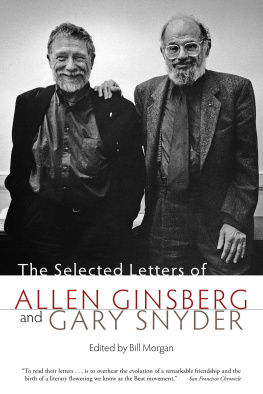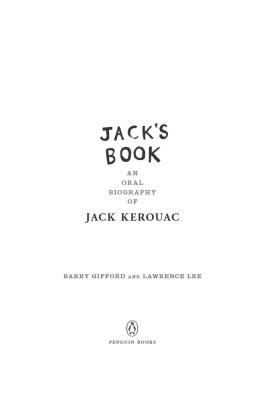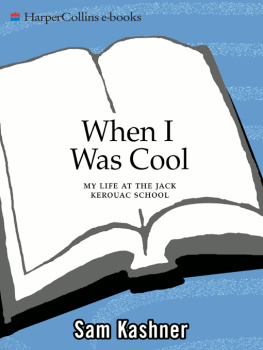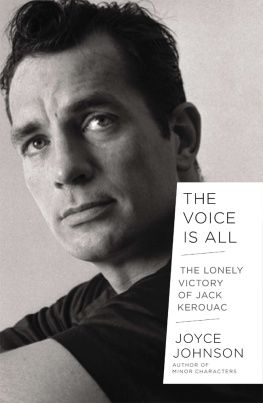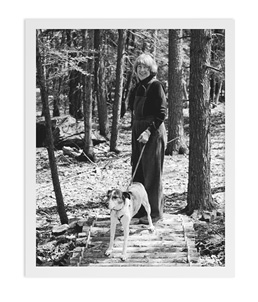Helen Weaver - The Awakener: A Memoir of Jack Kerouac and the Fifties
Here you can read online Helen Weaver - The Awakener: A Memoir of Jack Kerouac and the Fifties full text of the book (entire story) in english for free. Download pdf and epub, get meaning, cover and reviews about this ebook. year: 2014, publisher: City Lights Publishers, genre: Non-fiction. Description of the work, (preface) as well as reviews are available. Best literature library LitArk.com created for fans of good reading and offers a wide selection of genres:
Romance novel
Science fiction
Adventure
Detective
Science
History
Home and family
Prose
Art
Politics
Computer
Non-fiction
Religion
Business
Children
Humor
Choose a favorite category and find really read worthwhile books. Enjoy immersion in the world of imagination, feel the emotions of the characters or learn something new for yourself, make an fascinating discovery.

- Book:The Awakener: A Memoir of Jack Kerouac and the Fifties
- Author:
- Publisher:City Lights Publishers
- Genre:
- Year:2014
- Rating:5 / 5
- Favourites:Add to favourites
- Your mark:
The Awakener: A Memoir of Jack Kerouac and the Fifties: summary, description and annotation
We offer to read an annotation, description, summary or preface (depends on what the author of the book "The Awakener: A Memoir of Jack Kerouac and the Fifties" wrote himself). If you haven't found the necessary information about the book — write in the comments, we will try to find it.
The Awakener is Helen Weavers long awaited memoir of her adventures with Jack Kerouac, Allen Ginsberg, Lenny Bruce, and other wild characters from the New York City of the fifties and sixties. The sheltered but rebellious daughter of bookish Midwestern parents, Weaver survived a repressive upbringing in the wealthy suburbs of Scarsdale and an early divorce to land in Greenwich Village just in time for the birth of rock n rolland the counterculture movement known as the Beat Generation. Shortly after her arrival Kerouac, Ginsberg, and companyold friends of her roommatearrive on their doorstep after a non-stop drive from Mexico. Weaver and Kerouac fall in love on sight, and Kerouac moves in.
... Weaver] paints a romantic picture of Greenwich Village in the 1950s and 60s, when she worked in publishing and hung out with Allen Ginsberg and the poet Richard Howard and was wild and loose, getting high and falling into bed almost immediately with her crushes, including Lenny Bruce ... Her descriptions of the Village are evocative, recalling a time when she wore long skirts, Capezio ballet shoes and black stockings, and used to sit in the Bagatelle and have sweet vermouth on the rocks with a twist of lemon. Early on, she quotes Pasternak: You in others: this is your soul. Kerouacs soul lives on through many peopleJoyce Johnson, for onebut few have been as adept as Weaver at capturing both him and the New York bohemia of the time. He was lucky to have met her.Tara McKelvey, The New York Times Book Review
There is a tendency for memoirs written by women about The Great Man to be self-abnegating exercises in a kind of inverted narcissismthe author seeking to prove her worth as muse, as consort, as chosen one. Not so with Helen Weavers beautiful, plainspoken elegy for her time spent with Jack Kerouac, who suddenly appeared at her door in the West Village one white, frosty morning with Allen Ginsberg, who knew Weavers roommate, in tow.New York Post
Helen Weavers book was a revelation to me! ... This is the most graphic, honest, shameless, and moving documentary of what the newly liberated women in cities got up tohow they lived, loved, and created. Who knew? It is time they did! And heres how.Carolyn Cassady
Weaver recreates the excitement of a time when things were radically changing and shows us what it was like living with an eccentric genius at the turning point of his life. Eventually she asks Jack to leave but they remain friends, and over the years her respect for his writing grows even as Kerouacs reputation undergoes a gradual transition from enfant terrible to American icon. She comes to realize that by writing On the Road he woke America upalong with herfrom the long dream of the fifties. And the Buddhist philosophy that once struck her as Jacks excuse for doing whatever he liked because nothing is real, its all a dream eventually becomes her own.
Helen Weavers memoir is a riveting account of her love affair and friendship with Jack Kerouac. She is both clear-eyed and passionate about him, and writes with truly amazing grace.Ann Charters
Helen Weaver has translated over fifty books from the French of which one, Antonin Artaud: Selected Writings (Farrar, Straus and Giroux ) was a Finalist for the National Book Award in translation in 1976. She is co-author and general editor of the Larousse Enyclopedia of Astrology and author of The Daisy Sutra, a book on animal communication. She lives in Kingston, New York.
Helen Weaver: author's other books
Who wrote The Awakener: A Memoir of Jack Kerouac and the Fifties? Find out the surname, the name of the author of the book and a list of all author's works by series.

